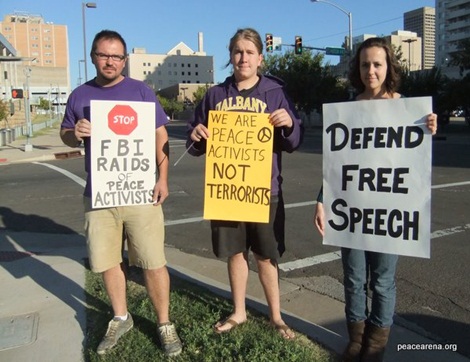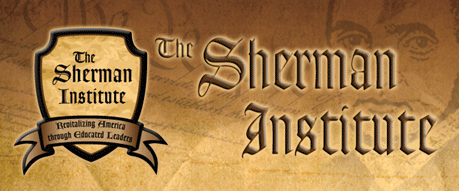
By Keith Johnson
Anti-war groups in the Midwest claim they are being harassed by the FBI and say they will not cooperate with a U.S. attorney’s ongoing investigation of 23 peace activists who are accused of providing “material support for terrorism.”
On Sept. 24, 2010 the FBI raided the homes of several activists in Minneapolis and Chicago. Computers, cameras, phones, political literature and other property was seized—but no arrests were made. Instead, subpoenas were served ordering the activists to produce documents to a grand jury relating to their travel and contacts in the Middle East and South America. To this day, the government is still harassing them, even going so far as to try to prosecute several for helping groups the U.S. State Department has labeled “terrorist.”


AFP recently spoke with Bruce Nestor, a civil rights attorney in Minneapolis, who represents some of the activists. “The primary focus of the government’s investigation is the Palestinian solidarity movement and those who have publicly expressed support for the Colombian rebel movement FARC (Revolutionary Armed Forces of Colombia),” said Nestor. “Everybody that received a subpoena declined to respond, asserting their privilege under the Fifth Amendment.”
According to Nestor, the government chose not to pursue the matter further in terms of granting immunity or compelling people to testify. Then, in late January, Nestor learned that the investigation was still pending pursuant to a telephone conversation with Minneapolis Assistant U.S. Attorney Andrew Winter.
While inquiring into the possibility of viewing some of the government’s sealed documents, Nestor was referred to Chicago Assistant U.S. Attorney Barry Jonas. This proved to be a disturbing development. Jonas previously led the prosecution against the Holy Land Foundation, a Muslim charity in the United States that sought to bring humanitarian relief to the people of Palestine. In 2009, five members of the group were given sentences ranging from 15 to 65 years for “funneling $12 million to Hamas.”
Hamas (Islamic Resistance Movement) is the popularly elected government in Palestine, which the U.S. government calls “a terrorist organization.”
During a Jan. 24 telephone conversation, Jonas denied Nestor’s request to view the documents and said they would remain secret “pending completion of the investigation.”
“At this point, nobody has been charged,” said Nestor. “But since the investigation is continuing, people are preparing for the probability that there will be some indictments.”
Nestor maintains the innocence of his clients, and says their public expression of support for humanitarian causes is legally protected by the Constitution.


The problem stems from the government’s broad interpretation of “material support.”
“In the case of Holder vs. Humanitarian Law Project, the U.S. Supreme Court basically upheld the reach of the law to include many things short of financial aid or weapons, [such as] technical support and coordinated speech,” said Nestor.
According to Nestor, “coordinated speech” is a loosely defined “gray area” that the government created in hopes of chilling criticism of U.S. foreign policy. He opined: “If you’ve had meetings with people connected to groups classified under the law as a designated terrorist organization, and then issue a statement that is similar to theirs, is that coordinated speech? I’m not saying it is, but would that be enough for the government to start an investigation of you, to search your home, or to wiretap you? In this day and age, I think it probably would.”
During the Holy Land Foundation trial, lead prosecutor Jonas employed many questionable tactics that prejudiced the jury’s decision, including secret witnesses, hearsay evidence and the introduction of findings that had nothing to do with the defendants in the case, such as showing a video from Palestine of protesters burning an American flag.
When asked if Jonas would use that strategy again, Nestor replied: “It certainly would be consistent with government practices in other cases. They [prosecutors] always seek to introduce evidence of violence engaged in abroad by people typically opposed to the U.S. government, even if there is no connection between those acts and the particular defendant.”
In response to the government’s crackdown on free speech, anti-war activists have set up the Committee to Stop FBI Repression, where they pledge to “carry forward our right to speak out, organize and to stand in solidarity with those who want freedom.”
——
Keith Johnson is an independent journalist and the editor of “Revolt of the Plebs,” an alternative news website that can be found at RevoltofthePlebs.com.

